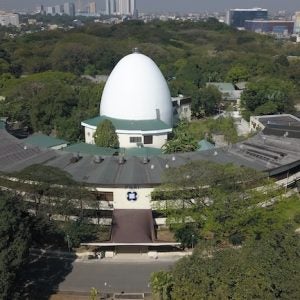 During a visit to Belfort on 10 February to mark the takeover of General Electric's nuclear activities by EDF, French President Emmanuel Macron announced a plan to build six EPR reactors with an option for eight more.
During a visit to Belfort on 10 February to mark the takeover of General Electric's nuclear activities by EDF, French President Emmanuel Macron announced a plan to build six EPR reactors with an option for eight more.
“Given the electricity needs, it is necessary to anticipate the transition, and the end of the existing fleet, which cannot be extended indefinitely,” he said “If we want to respect our climate commitments, reduce our dependence on world prices, ensure the industrial development of our country or control the energy bill of the French, we must immediately engage in structuring projects for our economy."
Two months before the presidential election, Macron outlined an ambitious recovery plan for civilian nuclear power, with the construction up to 14 reactors by 2050, and the development of marine wind power, but with a brake on onshore wind turbines. He asked EDF to build six new generation EPR2 reactors, the first to be commissioned by 2035, and a study for eight more for the end of the 2040s.
"In concrete terms, we are going to start the preparatory projects in the coming weeks," Macron said, promising "massive public funding of several tens of billions of euros" and to "secure the financial situation of EDF", currently heavily indebted. "I hope that no operating nuclear reactor will be closed in the future", he added. Under existing plans, a dozen were to close by 2035 in addition to the two units at Fessenheim, which were shut down in 2020.
However, as it would take 15 years to build a new nuclear plant there is an immediate need for more renewables, he said. He set the goal of providing some 50 offshore wind farms to "target 40 gigawatts in service by 2050”. Macron also sought a tenfold increase in installed solar power by 2050 for a total of 100GWe. On the other hand, for onshore wind turbines, he said he wants to double current capacity in 30 years, rather than 10 years according to existing plans. The speech represents a considerable change of direction for Macron, who in 2017 stressed his commitment to reduce nuclear power to 50% of electricity production, continuing the policy inherited from his predecessor, François Hollande.
The new approach is seen as a response to rising energy prices and a way to secure energy independence. According to France24 they are also “meant to put a lid on the president's past mishaps when it comes to the country's energy infrastructure”, namely the sale of Alstom to General Electric in 2014, which was finalised when Macron was economy minister.
The sale resulted in thousands of job losses and is now widely considered a strategic mistake, with Macron's role heavily criticised by workers unions and political rivals at the time. "I am not an industry specialist; I don't know whether there were other, more intelligent options from an industrial perspective," Macron told the GE workers in Belfort following their takeover by EDF. "The time of nuclear renaissance has come," he said, adding that the new energy policy was a return to "the great adventure of civil nuclear in France”.
However, the construction of new EPR reactors is likely be a technological and financial challenge. The one new EPR nuclear reactor currently under construction at unit 3 of the Flamanville is 10 years behind schedule and significantly over budget. Building six EPR2 reactors at existing sites is expected to cost around €50 billion according to EDF, which plans to build them in pairs on three sites: first in Penly (Seine-Maritime), near Dieppe, then in Gravelines (North) and finally in Bugey (Ain) or Tricastin (Drôme).
Nevertheless, Macron has put nuclear energy at the top of France's policy agenda and has also allocated €1 billion of public support to build new small modular reactors (SMRs). France also lobbied hard to ensure the nuclear was included in the EU's sustainable investments' taxonomy. Macron said this will allow France to fund these new projects.






